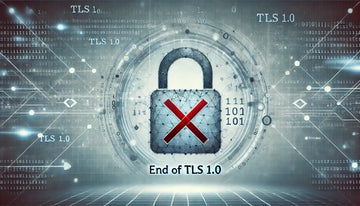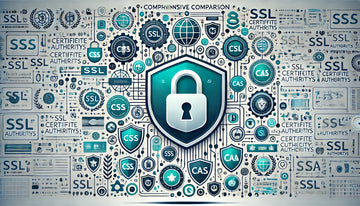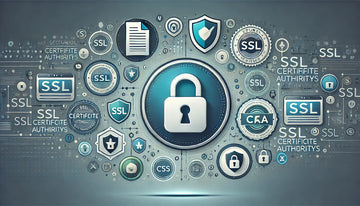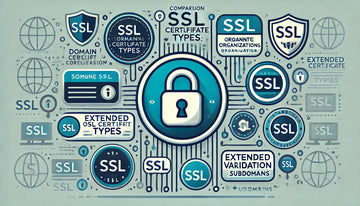E-commerce has become an integral part of the global economy, allowing consumers to shop online from the convenience of their homes. But e-commerce growth has also raised concerns about online safety and consumer confidence. SSL (Secure Sockets Layer) certificates play an essential role in building the trust of online buyers by ensuring transaction security and customer data protection. In this article, we will explore how SSL certificates impact online shoppers' trust and why they are crucial in modern e-commerce.
The Importance of Trust in Electronic Commerce
Trust is a key element in any commercial transaction, whether online or in a physical store. But in the e-commerce world, where shoppers can't see or touch the products before buying them, confidence plays an even more crucial role.
Here are some reasons why trust is essential in e-commerce:
- Transaction Security: Buyers should feel confident that their transactions and payment data are protected from online fraud and identity theft.
- Personal Data Protection: Buyers share personal information, such as addresses and credit card numbers, when making online purchases. They must trust that this information is handled safely.
- Customer Experience: Buyer confidence influences your overall experience. Confident buyers are more willing to shop and become regular customers.
- Brand Reputation: Trust in a brand is essential for long-term success in e-commerce. Customers who rely on a brand are more likely to recommend it to others.
Online Security and SSL Certificates
SSL certificates play a key role in building online buyers' confidence by providing the following key benefits:
- Data Encryption: SSL encrypts the communication between the buyer's browser and the e-commerce server. This means that any information transmitted, such as credit card numbers or login details, is protected and cannot be intercepted by malicious third parties.
- Server Authentication: SSL authenticates the identity of the web server, which ensures that buyers are connected to the legitimate website and not to a malicious replica. This prevents attacks from identity impersonation and phishing.
- Lock display and https://: Modern web browsers display a green lock or a message "Safe" in the address bar when a site uses SSL. This provides a clear visual signal that the site is safe and authentic.
- Policy Compliance: In certain sectors, such as the payment card industry, compliance with specific regulations is essential. SSL helps online stores comply with these regulations, such as the Payment Card Industry Data Security Standard (PCI DSS).
- SEO and Search Engine Positioning: Search engines, such as Google, prioritize secure websites in their search results. Having HTTPS can positively influence online positioning and online store visibility.
Impact on Online Buyers Trust
The implementation of SSL in an online store has a direct impact on shoppers' confidence:
- Confidence Increase: Buyers feel safer seeing that the website displays http:// and a green padlock on the address bar. This increases your confidence in the security of the site.
- Higher Conversion Rate: Websites using SSL tend to experience higher conversion rates, as buyers are more willing to complete transactions and share personal information.
- Reduction of the Shopping Cart Abandoning Reduction: The security offered by SSL can reduce the abandonment of the shopping cart. Shoppers are less likely to leave their purchases if they are confident their data is protected.
- Customer Retention: Buyers who have had a positive experience on a safe place are more likely to return and become loyal customers.
- Positive Recommendations and Reviews: Shoppers satisfied with the online security of a site are more likely to recommend it to others and to leave positive reviews.
Conclusions About SSL in Electronic Commerce
In the world of e-commerce, buyer confidence is critical to success. SSL certificates play a critical role in building that trust by providing security, data protection and visual signals of authenticity. Online shoppers are looking for secure sites and are more willing to buy in them. For online stores, investing in SSL is not only essential for data security, but is also an effective strategy to increase buyer confidence and encourage growth in online business. Ultimately, online security and buyer confidence are interconnected elements that drive the success of e-commerce in the current digital age.














